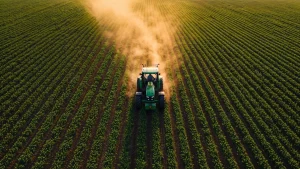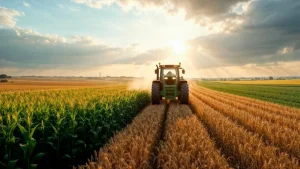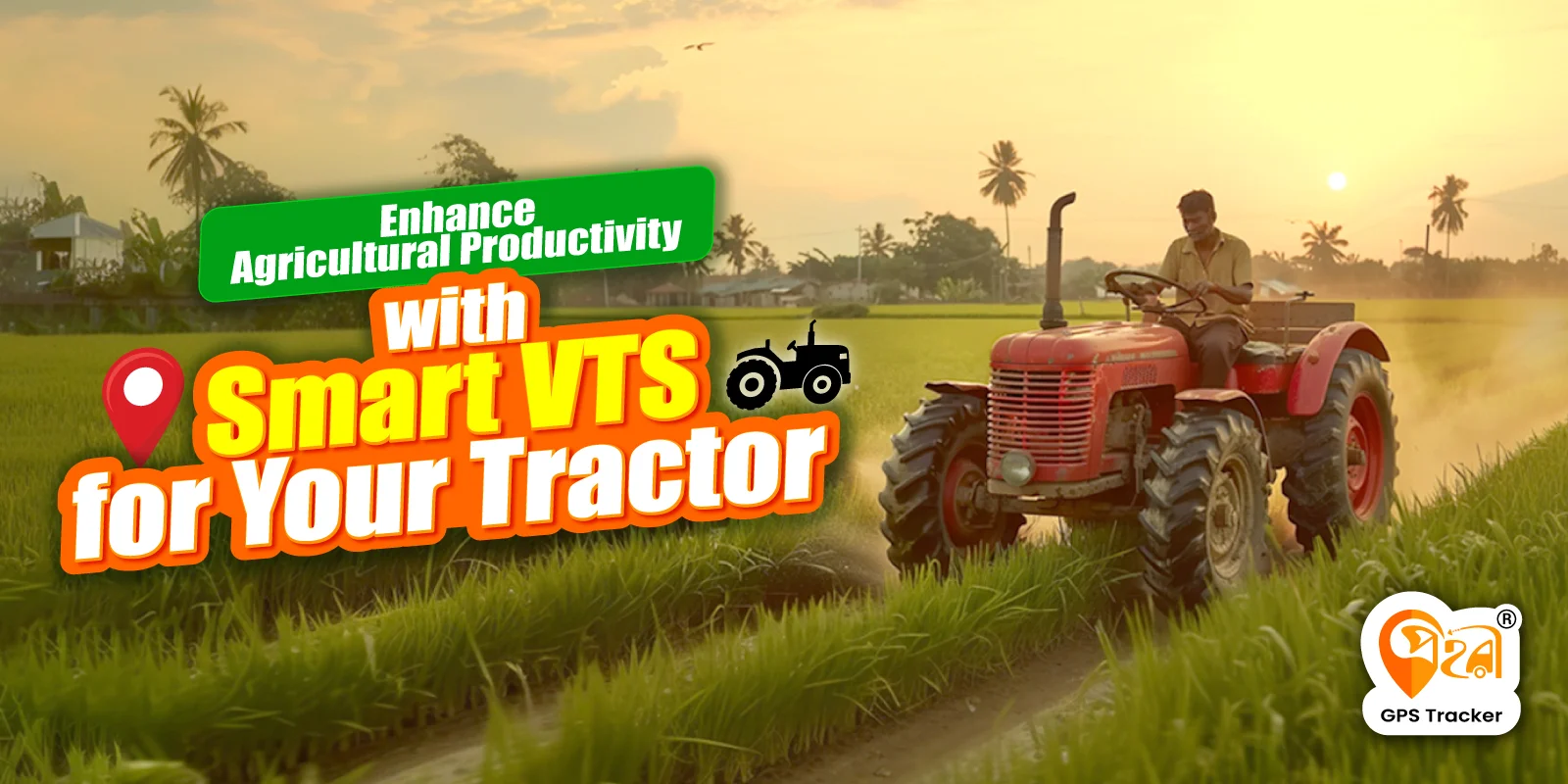Modern agriculture is rapidly evolving with the help of advanced technology, and the Vehicle Tracking System (VTS) is one of the most impactful tools driving this change. From real-time GPS tracking to precise field planning, VTS is making farm operations more efficient, data-driven, and profitable. These systems support tasks like tractor guidance, yield monitoring, and smart resource management, helping farmers make informed decisions.
At the heart of rural farming, tractors remain essential. But in today’s fast-paced world, owning a tractor is not enough. Smart VTS transforms tractors into powerful tools that boost productivity, reduce fuel costs, and improve overall farm management.
What Is a Smart Vehicle Tracking System (VTS)?
Vehicle Tracking System (VTS) is a GPS-based technology used to monitor and track the real-time location, movement, and performance of vehicles like tractors. It collects data such as speed, engine status, working hours, and travel routes, which can be accessed via mobile apps or computers. VTS helps farmers manage their tractors more efficiently by reducing fuel waste, preventing misuse, and improving work planning. Like a digital assistant, Smart VTS supports better decision-making, enhances productivity, and ensures the security of valuable farm equipment through accurate tracking and timely alerts.
Why Use Smart VTS for Tractors?

Smart VTS (Vehicle Tracking System) offers a powerful set of tools that help farmers and tractor owners manage their vehicles more efficiently. It is not just about knowing where the tractor is , it’s about gaining full control over its performance, safety, and usage. Let’s explore the major benefits in detail:
Real-Time Tracking
With Smart VTS, one can view the live location of their tractor at any moment through a mobile app or computer. This is extremely useful when one has multiple tractors operating across different fields or if renting out a tractor to others. It allows one to keep an eye on whether the work is being done as expected and ensures assets are not being misused. In case of theft or unauthorised use, real-time tracking helps respond quickly and recover the vehicle faster.
Fuel Monitoring
Fuel costs make up a large part of agricultural expenses, and any misuse or theft can quickly lead to financial loss. VTS with fuel monitoring capability tracks how much fuel is consumed during each operation. It can detect unusual fuel drops or excessive consumption, alerting one to possible issues like leaks, inefficiencies, or theft. With accurate fuel data, farmers can take steps to improve fuel efficiency, reduce wastage, and make more informed decisions about operations and budgeting.
Work Hour Reporting
Smart VTS automatically records the total number of hours the tractor engine runs. This data is especially important when tractors are operated by hired workers or rented out. It helps in calculating payments based on actual work hours, avoiding disputes or overpayment. It also gives insights into productivity and allows farm managers to plan workloads better. Over time, tracking work hours helps in understanding how efficiently each tractor is being used.
Geo-Fencing Alerts
Geo-fencing is a virtual boundary feature that allows one to define a specific area where the tractor is supposed to operate. If the tractor moves outside that area, the system instantly sends an alert to the user’s phone. This feature is very effective in preventing unauthorised use or potential theft. It also ensures that workers stay within their assigned fields and complete tasks as instructed. Geo-fencing enhances both operational discipline and equipment security.
Maintenance Reminders
Regular maintenance is key to keeping farmers’ tractors in top condition and avoiding breakdowns during peak farming seasons. Smart VTS systems track engine hours and usage patterns to notify them when the tractor is due for servicing. These timely alerts help them perform maintenance on schedule, which not only extends the life of the vehicle but also improves performance and reduces the risk of costly repairs. Scheduled maintenance becomes easier to manage and less likely to be forgotten.
How Smart VTS Enhance Agricultural Productivity

Smart VTS boosts agricultural productivity by providing real-time insights into tractor usage, location, and performance. It helps farmers manage time, fuel, and maintenance efficiently, leading to smoother operations and higher crop yields. Let us look at how Smart VTS adds value to daily farming tasks:
- Better Planning: When users know how long a task takes and how much fuel is used, they can plan better. They can decide which field to cover first and how many hours to work in a day.
- Saves Time: Smart VTS gives clear data. Users don’t have to guess or depend on others. This saves time and avoids confusion.
- Reduces Costs: Fuel theft and misuse of tractors are common in rural areas. VTS helps stop this. It also helps reduce maintenance costs by reminding users about servicing.
- Increases Trust: If one runs a tractor rental business, his clients will trust him more. They can show clients reports of work done – with proof. This builds confidence and increases business.
- Improves Security: Tractors are expensive. If someone steals it or uses it without permission, users will know. The GPS tracker will help users track and recover their tractor.
Wrap up
GPS tracking has become an essential tool in modern agriculture, helping farmers work smarter, not harder. With Smart VTS, tractors operate more efficiently, fuel is saved, and machines are better protected. This leads to higher productivity and less stress for farmers and tractor owners.
As technology continues to improve, the benefits of GPS in farming will only grow. Installing Smart VTS is a simple step toward a smarter, more sustainable future. Start today and take control of your farm’s success.





